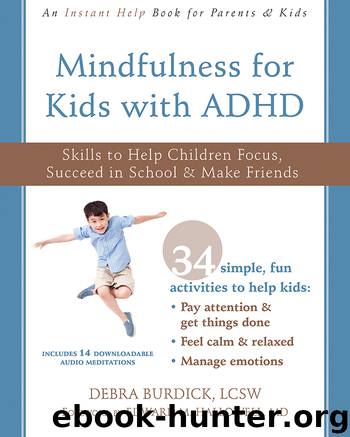Coping with Critical, Demanding, and Dysfunctional Parents by David M. Allen

Author:David M. Allen
Language: eng
Format: epub
Tags: Family dysfunction;metacommunication;kin selection;Family Systems therapy;psychoanalysis;cognitive behavioral therapy;unified therapy;self-help book;invalidation;family dynamics;relationships;empathy;evolutionary psychology;forgiveness;groupthink;habit formation;genograms;personality disorders;borderline personality disorder;ambiguity;mixed messages;enabling;social psychology;ethnic norms;ethnic stereotypes;denial;assertiveness training;game without end;narcissistic personality disorder;dysthymia;marital dynamics
Publisher: New Harbinger Publications
Published: 2018-10-22T17:15:10+00:00
These types of questions raise the possibility that you and your parents might behave in ways that run counter to family rules—and that is precisely what you want to discuss. It can lead to a discussion of the consequences they are so afraid of. What might Janis’s mother be afraid of happening if she were to speak out? Is there a family rule that “rocking the boat means everyone will fall overboard,” originating at a time when the family had to flee Europe due to their great-grandfather’s outspokenness? Is she scaring herself with illogical thoughts that Janis is bound to lose her job no matter how she phrases her concerns there?
Another concern here—and keeping this in mind can help you to remain empathic—is that parents often use misleading judgments and other strategies out of shame and embarrassment over their own thoughts and feelings. Janis’s mother may be worried, for example, that Janis will think less of her if she admits to feeling bad over her lack of assertiveness, as well as the fact that she was a coward when it came to breaking the family rule.
2. Describing Instead of Explaining
This phenomenon often comes into play when you are attempting to obtain an undistorted or honest explanation of a parent’s conscious motives for engaging in a particular course of action. Instead of communicating the actual reasoning behind his choice, he may instead merely describe his state of mind at the time of the action. This response sounds like an explanation for his motives or fears but in fact explains absolutely nothing.
This type of statement can be a dodge to avoid admitting something. Ten-year-old Mike’s father offered an illustrative example of this with his statement: “I won’t go gawk at holiday lights, because I just don’t like them.” There are always two types of reasons why someone does or does not “want” or “like” to do something, and in these cases the person is not indicating exactly which of the two is in play.
The first type of reason is based on idiosyncratic taste. There is no accounting for it; just as some people prefer blue suits to black suits, your father thinks holiday lights are ugly. However, when a family member claims to base his decision to choose or avoid a course of action on a mere personal idiosyncrasy, he may be avoiding the real reason.
The second type is a preference based on feared consequences. For example, Mike’s father, Doug, may say that he hates holiday lights and does not even like to go look at them because if he doesn’t say so, Mike will continue to push him to put some up on their two-story house; Mike does not know his father is afraid of heights, and his father is ashamed to admit to this. This shame developed because his own father, Mike’s grandfather, used to tease Doug relentlessly about his phobia.
When someone is ambivalent about family rules, she may use this type of misleading explanation to explain away problematic acts such as frequently and compulsively teasing you or doing things to avoid intimacy.
Download
This site does not store any files on its server. We only index and link to content provided by other sites. Please contact the content providers to delete copyright contents if any and email us, we'll remove relevant links or contents immediately.
Rewire Your Anxious Brain by Catherine M. Pittman(18648)
Talking to Strangers by Malcolm Gladwell(13357)
The Art of Thinking Clearly by Rolf Dobelli(10467)
Mindhunter: Inside the FBI's Elite Serial Crime Unit by John E. Douglas & Mark Olshaker(9331)
Becoming Supernatural by Dr. Joe Dispenza(8209)
Change Your Questions, Change Your Life by Marilee Adams(7769)
Nudge - Improving Decisions about Health, Wealth, and Happiness by Thaler Sunstein(7697)
The Road Less Traveled by M. Scott Peck(7599)
The Lost Art of Listening by Michael P. Nichols(7500)
Mastermind: How to Think Like Sherlock Holmes by Maria Konnikova(7331)
Enlightenment Now: The Case for Reason, Science, Humanism, and Progress by Steven Pinker(7309)
Win Bigly by Scott Adams(7187)
The Way of Zen by Alan W. Watts(6608)
Daring Greatly by Brene Brown(6507)
Big Magic: Creative Living Beyond Fear by Elizabeth Gilbert(5768)
Grit by Angela Duckworth(5612)
Ego Is the Enemy by Ryan Holiday(5425)
Men In Love by Nancy Friday(5237)
The Laws of Human Nature by Robert Greene(5193)
